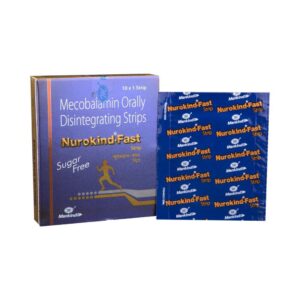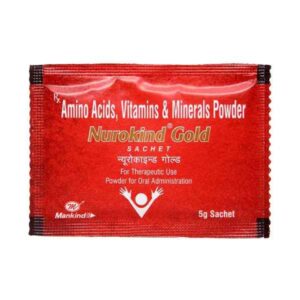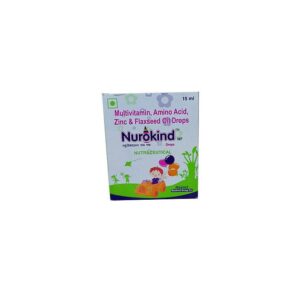BIOTIN + MECOBALAMIN
Biotin: Biotin, also known as vitamin B7 or vitamin H, is a water-soluble vitamin that is necessary for various bodily functions. It belongs to the B-complex group of vitamins and is involved in the metabolism of carbohydrates, fats, and proteins.
Biotin is primarily used as a supplement to treat biotin deficiency, which can occur due to certain conditions such as malnutrition, malabsorption, or in individuals with genetic disorders that affect biotin metabolism. It is also often taken to improve the health of the hair, skin, and nails.
The mechanism of action of biotin involves its role as a coenzyme. It acts as a cofactor for several enzymes involved in important metabolic pathways, including those involved in the breakdown of carbohydrates, fats, and amino acids. Biotin is required for the activation of these enzymes, allowing them to function properly.
The recommended daily dose of biotin varies depending on the individual’s age, sex, and specific health conditions. In general, the daily recommended intake for adults is around 30-100 micrograms per day. However, higher doses may be necessary for those with biotin deficiency or as directed by a healthcare professional.
Biotin is generally considered safe and well-tolerated when taken within the recommended dosage range. However, there have been rare reports of side effects, including allergic reactions such as itching, rash, or difficulty breathing. These reactions are extremely rare but should be immediately reported to a healthcare professional if experienced.
It is important to note that biotin supplements can interfere with certain lab tests, including those used to measure thyroid function and certain hormones. Therefore, it is advisable to inform healthcare providers or lab technicians about biotin supplementation if you are undergoing any lab tests.
Overall, biotin is an essential vitamin that plays a vital role in various metabolic processes. It is safe for most individuals when taken within the recommended dosage range, and any potential side effects are rare and generally mild. However, it is always recommended to consult with a healthcare professional before starting any new supplement or medication.
Mecobalamin: Mecobalamin, also known as methylcobalamin, is a form of vitamin B12. It is a synthetic substance that is used as a dietary supplement and medication. Mecobalamin is primarily used to treat vitamin B12 deficiency and associated conditions.
The mechanism of action of Mecobalamin involves its conversion to methylcobalamin, which is an active form of vitamin B12 in the body. Vitamin B12 is vital for the proper functioning of nerves and cells, as well as the synthesis of DNA. Mecobalamin helps in the production of healthy red blood cells, nerve cells, and DNA in the body.
The recommended dose of Mecobalamin varies depending on the individual’s age, health condition, and the severity of the vitamin B12 deficiency. It can be taken orally as tablets or administered as an injection. Typically, the usual dose for adults is 1000-5000 mcg per day, while for children, it is usually lower.
Common side effects of Mecobalamin are generally mild and include diarrhea, itching, rash, headache, dizziness, and mild pain or swelling at the injection site. Some individuals may experience an allergic reaction to Mecobalamin, which could manifest as difficulty breathing, chest tightness, swelling of the face or throat, and severe rash. If any severe side effects occur, it is important to seek immediate medical attention.
It is important to note that Mecobalamin may interact with certain medications and medical conditions. Therefore, it is essential to consult a healthcare professional before starting Mecobalamin to ensure its safe and appropriate use, especially if an individual has any underlying medical conditions or is taking other medications.



